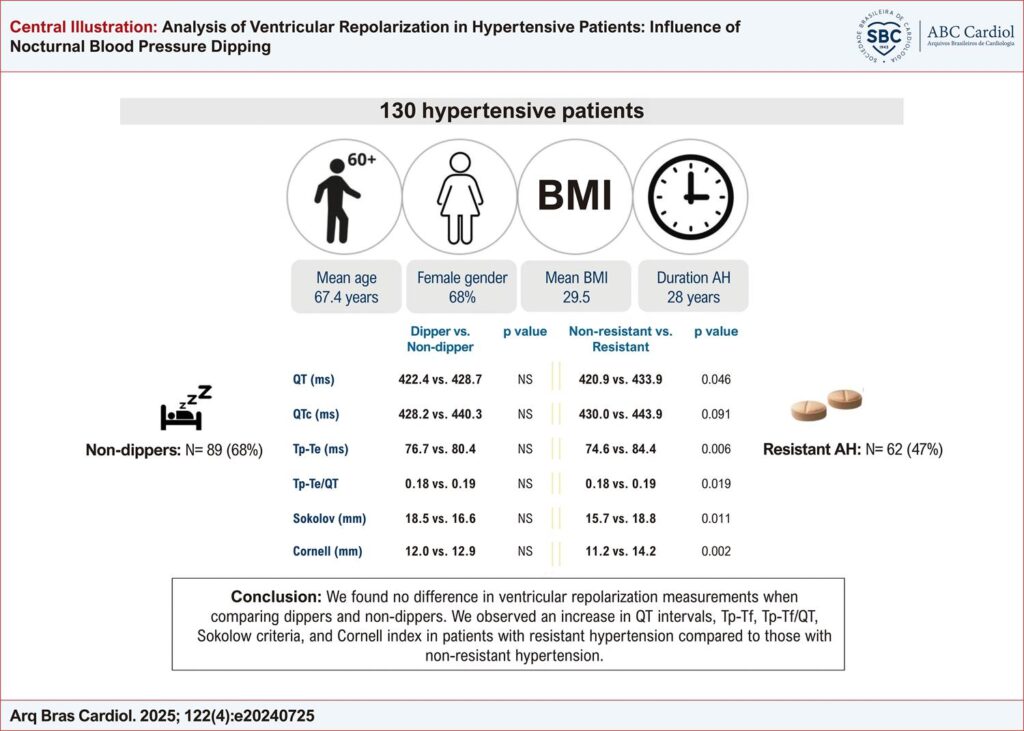Arq. Bras. Cardiol. 2025; 122(4): e20240725
Analysis of Ventricular Repolarization in Hypertensive Patients: Influence of Nocturnal Blood Pressure Dipping
Abstract
Changes in ventricular repolarization are associated with ventricular arrhythmias and higher mortality. The association between a non-dipper blood pressure pattern and changes in ventricular repolarization remains controversial. This study sought to compare ventricular repolarization measurements (QT interval, QTc, Tp-Te, Tp-Te/QT, and QTd) in hypertensive dippers and non-dippers. Secondary objectives are to compare measurements between controlled and uncontrolled hypertensive patients, as well as resistant and non-resistant hypertensive patients. This observational, cross-sectional study involved patients monitored in a Hypertension Service. The level of significance adopted in the statistical analysis was 5%. A total of 130 participants were admitted. The mean age was 67.4 years, with 72% presenting some form of target organ damage. Repolarization measurements did not differ between dippers and non-dippers. However, within the resistant hypertension group, when compared to the non-resistant, differences were observed in the QT interval in V5 (433.3 ms vs. 420.9 ms, p = 0.046), Tp-Te in both V2 (85.4 ms vs. 78.7 ms, p = 0.049) and V5 (84.6 ms vs. 74.6 ms, p = 0.006), Tp-Te/QT in V5 (0.19 vs. 0.18, p = 0.019), Sokolow-Lyon index (18.8 mm vs. 15.7 mm, p = 0.011), and Cornell index (14.2 mm vs. 11.2 mm, p = 0.002), aged-adjusted values. In this high cardiovascular risk hypertensive population, no difference in repolarization measures was found between dippers and non-dippers. However, this is the first study to demonstrate increased ventricular repolarization measures in patients with resistant hypertension.
334

